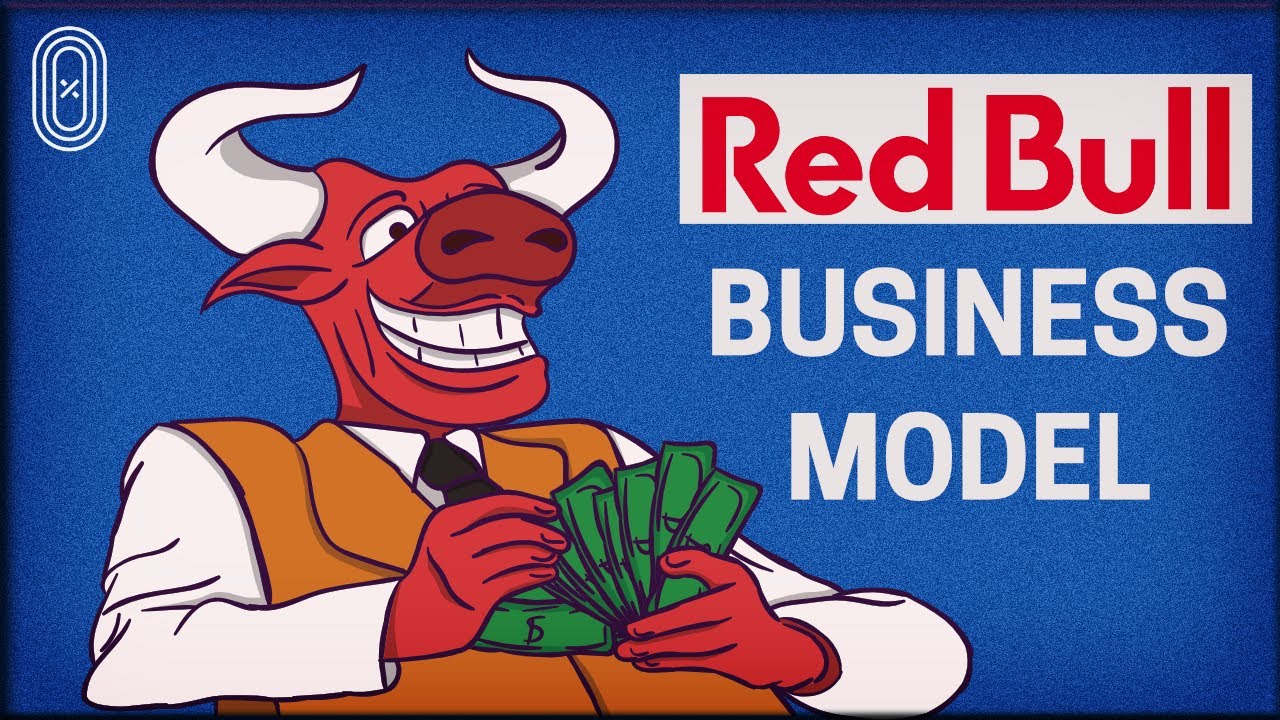- red bull advertising
- Introduction And Expansion: Red Bull’s Origins And Market Entry
- Pioneering Sport: Red Bull Creates First International Kiteboarding Competition
- Milestones & Achievements: Selling One Billion Cans And Entering Formula One
- Dominating The Market: Red Bull’s 43% Market Share In 2015
- Music Festival Takeover: Red Bull’s Partnership As Exclusive Broadcaster
- Expansion And Innovation: Launching Organic Sodas And Record-Breaking Sales In 2019
- Unconventional Advertising: Focus On Quality And Uniqueness
- Viral Marketing And Guerrilla Tactics: Red Bull Generates Buzz And Word Of Mouth
- Unique Differentiation: One Can, One Taste, One Color
- Selling A Lifestyle: Red Bull’s Branding And Relatable Content
In today’s fast-paced world, where everyone is constantly on the go, the need for an energy boost is more crucial than ever. And when it comes to fueling our bodies and minds, there’s one brand that has dominated themarket for decades – RedBull.
With its bold, innovative approach to advertising, RedBull has not only revolutionized the energy drink industry but also captivated the attention of consumers worldwide. From heart-pounding extreme sports to mind-boggling sponsorships, their marketing strategies leave no stone unturned.
So, buckle up and get ready to dive into the captivating world of Red Bulladvertising, where the Red Bull gives you wings!
| Item | Details |
|---|---|
| Topic | The Hidden Secrets Behind Red Bull Advertising Unveiled |
| Category | Ads |
| Key takeaway | In today's fast-paced world, where everyone is constantly on the go, the need for an energy boost is more crucial than ever. |
| Last updated | December 27, 2025 |
red bull advertising
Red Bull’s advertising strategy focuses on product quality, uniqueness, and creating an iconic brand. Rather than relying on traditional mass media campaigns, Red Bull employs viral marketing and guerrilla-style tactics to generate buzz and word of mouth.
They differentiate themselves by offering one 8.4-ounce can, one taste, and one color. Red Bull views its marketing efforts as selling a way of life, emphasizing relatable content and utilizing brand evangelists.
They have built a strong brand presence through sponsorships of sporting events and athletes, particularly in extreme sports. Additionally, Red Bull encourages user-generated content and collaborations with influencers.
Overall, Red Bull’s advertising approach revolves around creativity, authenticity, and breaking patterns to establish and maintain a unique and iconic brand.
Key Points:
- Red Bull emphasizes product quality, uniqueness, and building an iconic brand in their advertising strategy.
- They use viral marketing and guerrilla-style tactics to generate buzz and word of mouth rather than traditional mass media campaigns.
- Red Bull differentiates itself by offering a single can size, taste, and color, while selling a lifestyle through relatable content and brand evangelists.
- They have established a strong brand presence through sponsorships of sporting events and extreme sports athletes.
- Red Bull encourages user-generated content and collaborations with influencers.
- Their overall advertising approach focuses on creativity, authenticity, and breaking patterns to establish and maintain a unique and iconic brand.
Sources
https://www.redbull.com/us-en/world-of-red-bull-commercial
https://hashtagpaid.com/banknotes/red-bulls-approach-to-marketing-then-and-now
https://www.ispot.tv/brands/dvz/red-bull
https://coschedule.com/blog/red-bull-marketing-strategy
Check this out:
? Pro Tips:
1. Red Bull’s focus on product quality and uniqueness sets it apart from traditional advertising methods.
2. Red Bull’s marketing strategy relies heavily on viral marketing and guerrilla-style tactics to generate buzz and word of mouth.
3. The brand differentiates itself by offering one 8.4-ounce can, one taste, and one color, creating a distinct identity in the market.
4. Red Bull aims to build a unique and iconic brand from the start, avoiding mass media campaigns and relying on creative marketing strategies.
5. Red Bull’s marketing efforts sell a way of life rather than just an energy drink, focusing on relatable content and utilizing brand evangelists to spread the word.
Introduction And Expansion: Red Bull’s Origins And Market Entry
Red Bull, the popular energy drink brand, was founded in 1984 by Dietrich Mateschitz and Chaleo Yoovidhya. It was first introduced to the market in 1987, revolutionizing the beverage industry with its unique formula and bold marketing strategies.
Although Red Bull originated in Thailand, it quickly expanded its reach internationally. The brand entered the UK market in 1995 and made a splash in the United States in 1997.
These strategic moves allowed Red Bull to tap into the vast consumer bases of two major markets, establishing a strong presence worldwide.
Pioneering Sport: Red Bull Creates First International Kiteboarding Competition
Red Bull has always been a brand that pushes boundaries and embraces extreme sports. In 1999, the company organized the world’s first international kiteboarding competition, demonstrating its commitment to promoting thrilling and unconventional activities.
By delving into the world of kiteboarding, Red Bull showcased its dedication to groundbreaking ventures that captivate audiences and foster a sense of adventure. This move not only solidified Red Bull’s position as a pioneer in the energy drink industry, but it also positioned the brand as a leading supporter of extreme sports.
Milestones & Achievements: Selling One Billion Cans And Entering Formula One
Red Bull achieved significant milestones that further solidified its position as an industry leader. In 2001, the company celebrated the sale of its billionth can, a remarkable accomplishment by any measure.
This milestone not only demonstrated the brand’s popularity and widespread appeal but also highlighted its ability to capture the energy drink market.
In 2005, Red Bull entered the high-octane world of Formula One by debuting as a team owner. This move marked a significant shift for the brand, as it ventured into the realm of motorsport.
By partnering with the Sauber team, Red Bull propelled its logo to global recognition, ensuring its prominent presence in the highly competitive racing scene.
Dominating The Market: Red Bull’s 43% Market Share In 2015
Red Bull’s relentless pursuit of excellence led to impressive market dominance in the energy drink industry. In 2015, the brand earned a staggering 43% of the market share for energy drinks, a feat that solidified its position as a frontrunner in the highly competitive beverage market.
This significant achievement can be attributed to Red Bull’s ability to connect with consumers on multiple levels, offering a high-quality product while building an iconic brand with an authentic and relatable image.
Music Festival Takeover: Red Bull’s Partnership As Exclusive Broadcaster
Recognizing the need to diversify its marketing efforts, Red Bull expanded its reach into the music industry. In 2016, the brand became the exclusive broadcaster for six major music festivals, including Austin City Limits and Lollapalooza.
This partnership allowed Red Bull to tap into the immense popularity of music festivals and leverage the enthusiasm surrounding these events. By associating its brand with the excitement and vibrancy of music festivals, Red Bull further solidified its position as a lifestyle brand that offers more than just an energy drink.
Expansion And Innovation: Launching Organic Sodas And Record-Breaking Sales In 2019
Continuing its pursuit of innovation and growth, Red Bull launched a new line of organic sodas in 2018. This expansion into the soda market showcased the brand’s willingness to adapt and cater to evolving consumer preferences.
By diversifying its product offerings, Red Bull widened its appeal and further solidified its position in the beverage industry.
The year 2019 proved to be another milestone for Red Bull as it recorded sales of 7.5 billion cans worldwide. This staggering achievement demonstrated the brand’s continued success in capturing consumer loyalty and maintaining a strong market presence.
Unconventional Advertising: Focus On Quality And Uniqueness
Unlike many traditional advertising campaigns, Red Bull’s marketing strategy has always focused on product quality and uniqueness. The brand decided to steer clear of mass media campaigns and instead embraced a more unconventional approach to advertising.
Red Bull understands that to build an iconic brand, creativity and authenticity must take precedence. By prioritizing these elements, the brand has managed to create a distinct and recognizable image that resonates with consumers.
Viral Marketing And Guerrilla Tactics: Red Bull Generates Buzz And Word Of Mouth
Red Bull’s marketing success can be attributed, in part, to its adept use of viral marketing and guerrilla-style tactics. The brand actively seeks to generate buzz and word of mouth by creating unique and unforgettable campaigns that capture the attention of consumers.
Through cleverly executed stunts, events, and activations, Red Bull consistently creates memorable experiences that spark conversations and generate sharing across social media platforms. This approach allows the brand to leverage the power of user-generated content and capitalize on the enthusiasm of brand evangelists.
Unique Differentiation: One Can, One Taste, One Color
Red Bull’s commitment to differentiation is evident through its unique product offerings. Unlike its competitors, Red Bull offers only one 8.4-ounce can, one taste, and one color.
This deliberate choice sets Red Bull apart from other energy drink brands and solidifies its position as a leader in the market.
By providing a consistent and recognizable product, Red Bull ensures that consumers associate its brand with reliability and quality. This minimalist approach to product differentiation embodies the brand’s commitment to simplicity and clarity.
Selling A Lifestyle: Red Bull’s Branding And Relatable Content
Red Bull understands that its success lies in selling more than just an energy drink. The brand aims to sell a lifestyle, one that embodies adventure, exhilaration, and a thirst for life.
By aligning its marketing efforts with relatable content and authentic experiences, Red Bull has successfully cultivated an emotional connection with its consumers.
Red Bull’s focus on relatability allows the brand to connect with consumers on a deeper level, fostering brand loyalty and creating a strong presence in the minds and hearts of consumers.
In conclusion, Red Bull’s success can be attributed to a combination of innovative marketing strategies, a commitment to quality and uniqueness, and a relentless pursuit of expanding its brand presence. By continuously pushing boundaries and embracing unconventional approaches, Red Bull has transformed itself from a simple energy drink into an iconic lifestyle brand.
This post updated with new ad network performance data.
Self-Serve DSP Platform • Buy Traffic • Performance Marketing Tips











